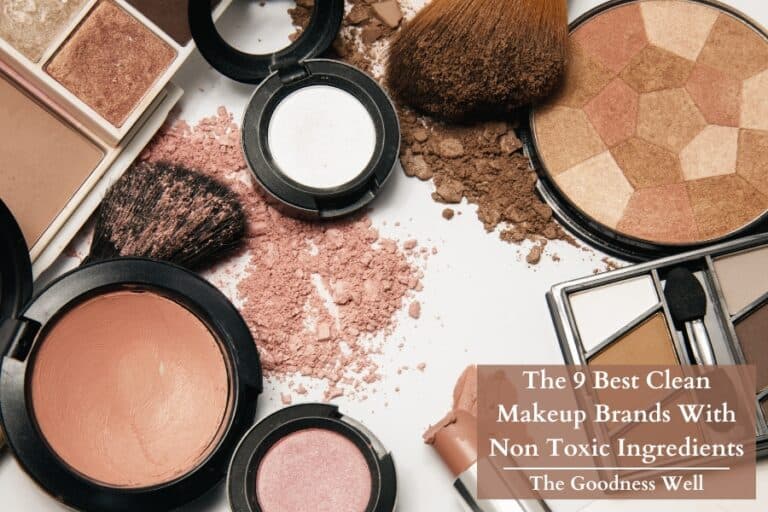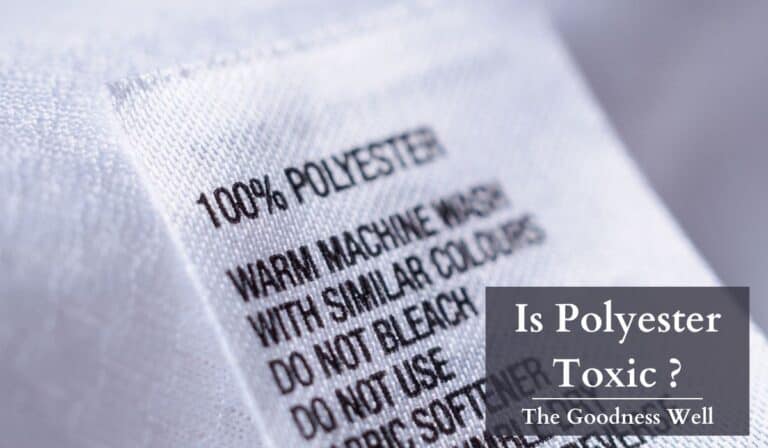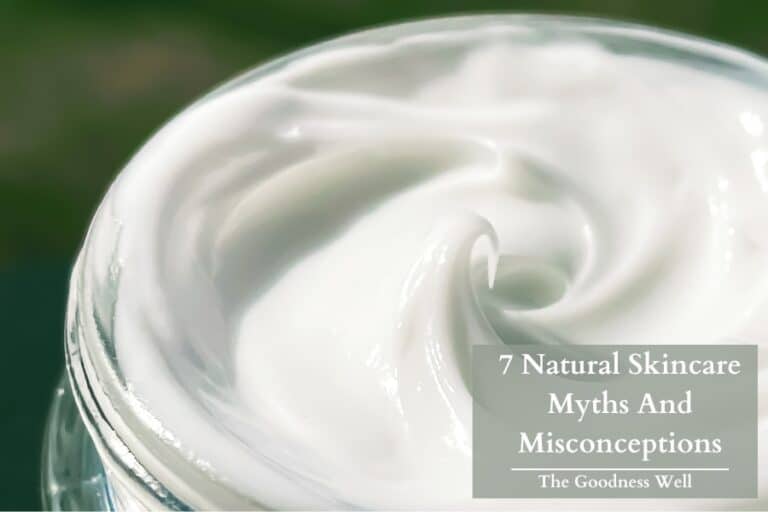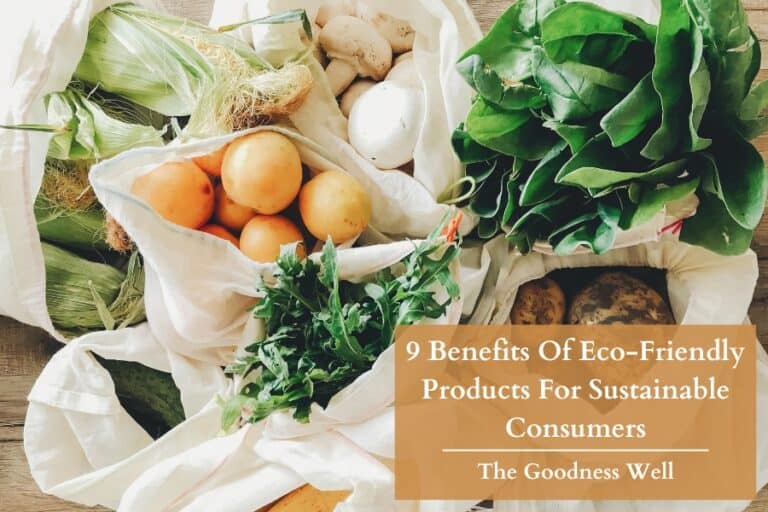Why Wear Organic Clothing? 7 Great Reasons
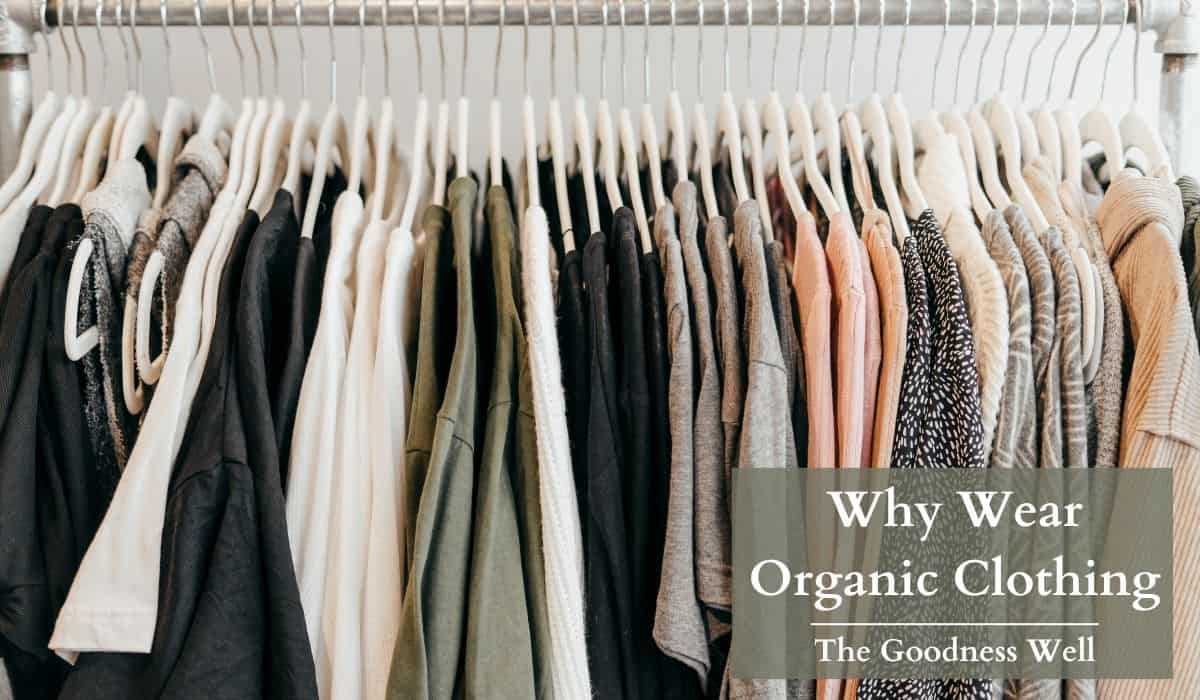
If you’re like me, you’re trying to rid your life of all the toxins and live as pure and healthy as possible.
And if that’s true, you watch what you put on and in your body. But this isn’t just limited to lotions and perfumes, it’s our clothes too!
And with more natural clothing options popping up in stores, you might ask, “Why wear organic clothing?“
Well, I’m here to give you some pretty good reasons why.
Let’s get into it!
TL;DR
7 Reasons to Wear Organic Clothing:
- Skin-Friendly
- No Microfibers
- Biodegradable
- Better for Farmers
- Eco-Friendly Production
- Supports Ethical Practices
- Protects Wildlife
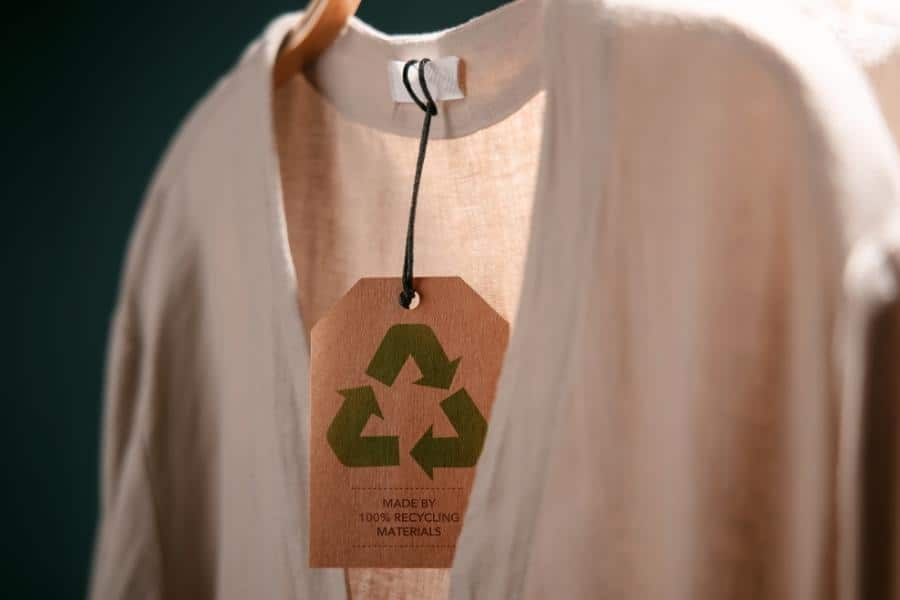
What Is Organic Clothing?
Organic clothing is made from materials free of synthetic chemicals like pesticides or GMOs all while using farming methods that help keep a low impact on the environment.
Here’s what goes into these clothes:
- Organic Materials: Organic cotton, but also includes hemp, bamboo, kapok, linen, and wool.
- Chemical-Free: Unlike synthetic fabrics (polyester, nylon, acrylic), organic ones don’t use or include harmful chemicals.
- Eco-Friendly Processes: Uses natural or low-impact dyes and avoids harmful bleaches.
- Ethical Production: A good organic clothing brand gives fair wages, good working conditions, and uses other sustainable practices.
- Certification: These brands should also have certifications like GOTS or OCS, proving what they say is true!
- Biodegradability: These materials decompose more easily which reduces landfill waste.
In all, these materials are non toxic and an ethical fashion choice, benefiting you and the environment!
Why Wear Organic Clothing? 7 Convincing Reasons
1. Skin-Friendly
From dyes, phthalates, and formaldehyde to flame retardants, the chemicals found in synthetic clothing aren’t safe or healthy materials for our skin.
One study we found showed that benzothiazole, a toxic chemical we can be exposed to through clothing, can be absorbed into our skin.
2. No Microfibers
Did you know most plastics shed microfibers?
This especially includes clothing like polyester and nylon, some of the worst offenders (yes, these clothing materials are plastic).
These microfibers not only harm the environment, but more research is showing it isn’t great for our health either.
3. Biodegradable
Most organic materials are biodegradable, meaning they don’t contribute to long-term waste or pollution.
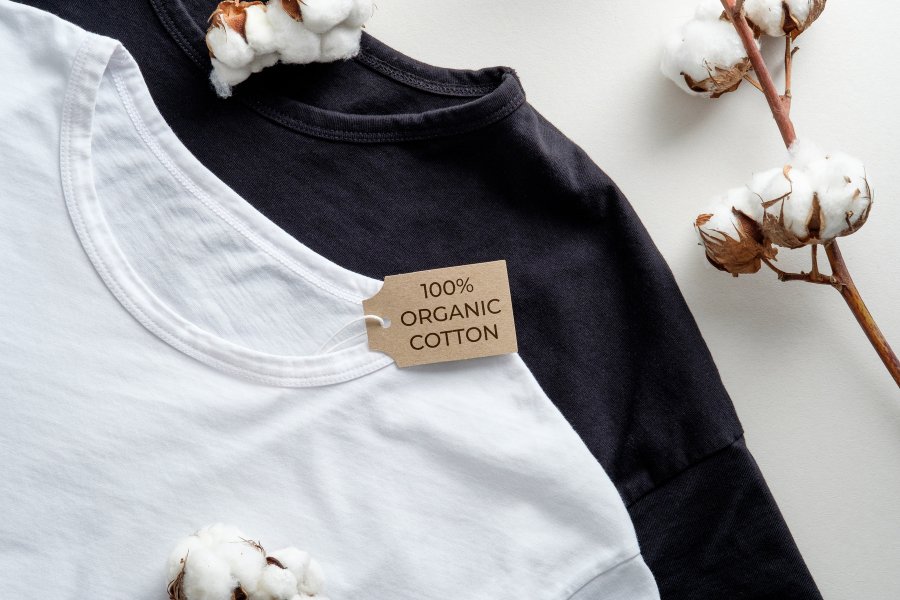
4. Better for Farmers
Organic clothing production reduces farmers’ exposure to toxic chemicals and pesticides, enhances soil health, and potentially increases income through higher market prices for organic crops.
5. Eco-Friendly Production
Producing organic clothes consumes less energy and water, and involves fewer chemicals, reducing its impact on the environment.
6. Supports Ethical Practices
Most reputable brands that sell these materials also use fair trade and carbon neutral practices, and should also have certifications or partnerships to back these claims up.
7. Protects Wildlife
Without the use of pesticides, organic farming practices are less harmful to insects, birds, and other wildlife.
The Dark Side of Fast Fashion

When you choose organic clothes, you contribute much less to piles of waste as you see above, a result of fast fashion- the rapid production of high volumes of low-priced clothing.
“Low-priced clothing sounds good!” It’s not. Here are a few reasons why:
- Environmental Degradation: Fast fashion contributes to massive deforestation, water pollution, and a massive carbon footprint.
- Waste Accumulation: Trends come and go, leading to an accumulation of ‘outdated’ clothes which often end up in landfills.
- Exploitation of Workers: Behind those low prices are often low wages, unsafe working conditions, and long hours.
- Decreased Mental Health: Fast fashion and the mindset behind it isn’t any good for your mental health.

Spotting Genuine Organic Materials
So, what should you look for when shopping organic?
Here are some favored materials:
- Organic Cotton
- Hemp
- Bamboo
- Kapok
- Organic Wool
On the flip side, try to avoid:
- Conventional cotton (high pesticide usage)
- Polyester (derived from petroleum)
- Acrylic (contains toxic manufacturing agents)
- Unethically sourced leather
Final Thoughts
By choosing organic, you expose yourself, other people, and the environment to less toxic chemicals.
The price point may be higher, but the ripple effect on health and environmental sustainability is more than worth it!
Stay green and stylish, because you can be both!


